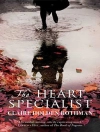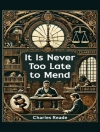In Joseph Sheridan Le Fanu’s groundbreaking novella ’Carmilla, ’ first published in 1872, the narrative delves into the eerie world of vampirism with a deeply psychological and gothic flair. Set against the backdrop of the 19th-century Austro-Hungarian countryside, the story unfolds through the experiences of Laura, a young woman whose life is disrupted by the arrival of the mysterious Carmilla, whose intimate friendship mines the depths of desire and dread. Le Fanu’s prose is characterized by its rich, atmospheric detail, reflecting the literature of the Victorian era while also foreshadowing the themes of sexual identity and the supernatural that would later permeate the genre. This work stands as a critical precursor to Bram Stoker’s ’Dracula, ’ amplifying the themes of forbidden love and the coexistence of the sensual and the malevolent within its haunting narrative frame. Joseph Sheridan Le Fanu, an influential figure in the realm of gothic fiction, was known for his masterful storytelling and exploration of psychological terror. His keen interest in folklore, Irish heritage, and complex relationships greatly informed his narrative choices in ’Carmilla.’ With a background steeped in the literary traditions of both gothic horror and the emerging curiosity of the supernatural, Le Fanu’s creation of a female vampire can be seen as a radical challenge to strict gender norms and societal expectations of his time. I highly recommend ’Carmilla’ to readers interested in gothic literature, queer theory, and the evolution of horror fiction. This novella not only provides a chilling tale of horror but also complicates our understanding of desire and identity in the context of the Victorian period. It remains a seminal text that continues to inspire and provoke discussions about sexuality, power, and the supernatural.
Om författaren
Joseph Sheridan Le Fanu (1814–1873) was an Irish writer, celebrated for his pivotal contributions to the Gothic horror genre. Born in Dublin to a literary family, Le Fanu studied law at Trinity College, but his passion for writing soon eclipsed his legal career. He became a leading ghost-story writer of the nineteenth century, drawing on Celtic folklore and the haunting landscapes of his homeland to create an atmosphere of eerie suspense in his work. Le Fanu’s most enduring legacy is likely ’Carmilla’ (1872), a novella that predated Bram Stoker’s ’Dracula’ by 25 years and introduced many tropes that would become staples of vampire fiction. The story of Carmilla, a female vampire who preys on a young girl, was groundbreaking for its exploration of complex themes such as female sexuality and the supernatural. It has since inspired countless adaptations and continues to influence the genre today. Le Fanu’s literary style often involved a slow burn of psychological terror, his haunted settings and ethereal spectres provoking deep-set unease rather than shock. His tales were grounded in the human psyche, examining fear and superstition. His extensive body of work, including ’Uncle Silas’ and ’The House by the Churchyard’, has cemented Le Fanu as a master of the uncanny and a forefather of modern horror writing.












